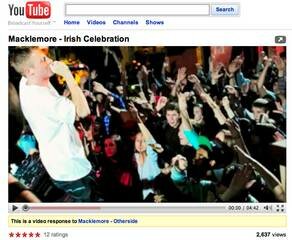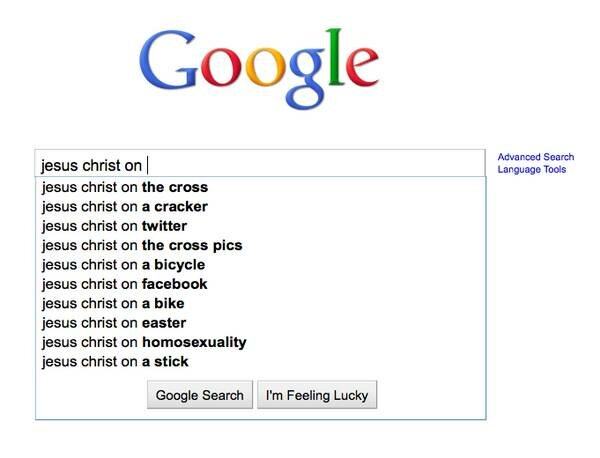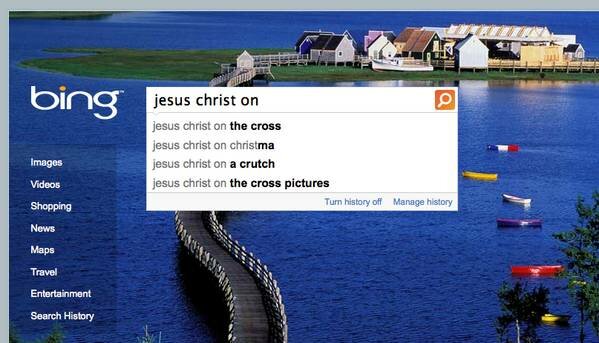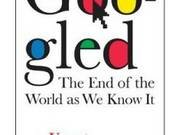The net neutrality Internet is like a series of happy pipes, glad to see all kinds of data. Thanks to our Flickr pool's zenobia_joy for this wonderful shot.
Special to The SunBreak by Mark Rushing of Orbis Lumen
[Ed.: A proposed agreement between Google and Verizon has pundits debating its merits at warp speed, while pixels are still free. Wired has the "real" story. HuffPo has seen it all before. We asked Mark to take a step back and give us the lay of the land. Here's the first part in a series on net neutrality.]
Would you be happier if you no longer were charged for voice minutes? What if you were no longer charged for voice minutes, but strangely you had unlimited voice talk time?
What if you suddenly had unlimited text messaging capabilities for free? And unlimited multimedia messaging as well? And what if you also were given a new telephone number for free, that rang your cell phone and home phone simultaneously, or any other phone, too? And all your voice mail messages were recorded and transcribed, then emailed to you, and you never had to worry about copying people and their contact information to your phone again?
Well, you can get this right now, and the mobile telephone companies are not too pleased. Google, one of the Great Horsemen of the ongoing Internet Apocalypse--which is seeing the slow demise of such power institutions as traditional newspapers, the music industry, publishing, and is transforming the way we perceive our role in government, international issues, and the way we organize--well, Google is ruffling the feathers of the Powers that Be, namely the very few companies who own all the pipes that this Internet thing flows through.
And the power that forced these giants to allow others--such as Google--room to grow was...you and me, through the principles of net neutrality.
We may smugly believe the Internet has already arrived, but it is actually still in the process of arriving. And sometimes this behemoth of decentralized interconnections between us looks more like a planet crashing in ultra-slow motion through a steel and glass china shop than it looks like, well, just an amorphous thing of stuff, doing this and that. That china shop has been many things. Right now, that steel-girdered china shop is the mobile telecommunications industry, and they're doing all they can to stop that world from crashing through it....
The view from the deck at Ivar's on Lake Union
ABC News: Rudy Guede's cell mate claims Guede told him Amanda Knox and Raffaele Sollecito weren't at the house when Meredith Kercher was killed--another man was. Guede says he never said that. Who do you trust, the convicted child killer or the convicted murderer? Once again, Andrea Vogt has all the details.
Here on The SunBreak, Jeremy has been covering Oregon's response to declining state revenues; now Washington Senate Majority Leader Lisa Brown has unveiled her idea for a high earner's income tax referendum--letting the public vote on it in November. The initial reaction from the legislature is that they won't be rushed into anything--except of course deep cuts to basic services and health care for the working poor, and increases in the regressive sales tax that will hit the working poor hardest.
An income tax of 4.5 percent would be assessed on any income over $200,000 for an individual, $400,000 for a married couple. The state sales tax would drop to six cents. For instance, the Port of Seattle CEO makes $319,000. If he were single, he'd pay 4.5 percent of $119,000, or $5,355 in income taxes.
TechFlash reported on Google's acquisition of Picnik, the hometown photo editing service. Starbucks tried to defuse the uproar over its handgun-agnostic position. Tom Douglas can't wait to feed the Amazonian masses down in South Lake Union....
 The story, headlined "Google Responds to Privacy Concerns with Unsettlingly Specific Apology," contains this shout-out to our northern neighbors:
The story, headlined "Google Responds to Privacy Concerns with Unsettlingly Specific Apology," contains this shout-out to our northern neighbors:
Added Schmidt, "Whether you're Michael Paulson who lives at 3425 Longview Terrace and makes $86,400 a year, or Jessica Goldblatt from Lynnwood, WA, who already has well-established trust issues, we at Google would just like to say how very, truly sorry we are."
Congratulations on Lynnwood's first namecheck by The Onion. Seattle has 88 mentions, including one from the future, where Seattle Mayor Frances Bean Cobain-Osment calls for emergency deforestation.
Earlier this week Josh posted about how Bing is integrating geotagged Flickr photos almost seamlessly into its streetview maps. You have to see it to believe it. As this TED talk starring Blaise Aguera y Arcas (below) demonstrates, that functionality is really just the tip of the iceberg.
There's also a Local Lens app for a visual view of hyperlocal stories (the difficulty in getting this right is illustrated with Capitol Hill stories provided by Cap to the Hill, Seattlest, and Beacon Hill Blog, with no Slog or Capitol Hill Seattle).
In the video, there's a breathtaking use of live streaming 4G to integrate a video of a Bing Maps team down at Pike Place Market into the view of Pike Place Market that Aguera y Arcas is showing the TED audience.
That leads us to Liquid Galaxy, where Google's Jason Holt turns Google Earth's 3D view into a flying carpet ride. When you step inside an interactive booth wrapped by LCD screens, you get the immersive experience (I got vertigo just watching the video) of traveling through space--in the air, at ground level, and even below water (the video below takes you for a dip in Monterey Bay).
 If you own an iPhone, you've run up against the downside of dominant market share. Local software company Adobe is responsible for Flash, which, besides being a terrific way to annoy site visitors as they wait for landing pages to load or as they scramble to turn down music that blares suddenly, has become the default way to display animation and video on the internet.
If you own an iPhone, you've run up against the downside of dominant market share. Local software company Adobe is responsible for Flash, which, besides being a terrific way to annoy site visitors as they wait for landing pages to load or as they scramble to turn down music that blares suddenly, has become the default way to display animation and video on the internet.
But Apple has so far refused to allow Flash to play in the iPhone's Safari browser. They have their reasons. Adobe has responded to the more technical variety, but perhaps sensing that Apple wouldn't be happy with anything less than iFlash, they have been hammering and sawing on Flash CS5. (They're foregoing a public beta, in fact, to roll out the software faster.)
CS5 contains a packager that "will automatically convert any Flash app into an iPhone app," reports the Washington Post. (A Hulu app, that's what that means! Or it should. Get on that, Hulu. Oh, good.)
But the delay has already given Adobe (and Microsoft's Silverlight, for that matter) a competitor they weren't looking for.
Yesterday YouTube announced it's supporting HTML5 video players, which (currently) work in Chrome, Safari, and ChromeFrame on Internet Explorer. Today it's Vimeo. ReadWriteWeb explains that, "An HTML5 video player will allow videos to be viewed without Adobe's Flashplayer plug-in, videos will load faster and developers will be able to build all kinds of other intriguing features into a media delivery scheme based on the next version of HTML."
You can sign up for an experimental HTML5 video player here.
I am not backing a particular horse here--my hope is simply to maximize the streaming video I can watch via iPhone, as a way of paying AT&T back for their unlimited data plan pricing. Flash, HTML5--I just want to play Lawrence of Arabia in high rotation until a data center buckles.
 We have Paul Swortz, from The SunBreak Flickr photo pool, to thank for this eye candy.
We have Paul Swortz, from The SunBreak Flickr photo pool, to thank for this eye candy.
Let's begin with the week in technology: RealNetworks' CEO Rob Glaser stepped down suddenly; TechFlash owned the story, and has a "What they're saying" round-up.
Microsoft made the Google v. China news twice: The hackers exploited an Internet Explorer flaw and then Microsoft's Steve Ballmer said he "didn't get" what all the fuss was about. (In one sense, there's no arguing with that statement: there is absolutely nothing out of the ordinary about hackers tunneling in through IE.)
Zillow is third in real estate websites, and Redfin surged into the top 20, at 18. The "Baby Einstein" people are suing the UW researchers who noticed a distinct lack of Einsteins so far.
On the political front, Mayor McGinn announced he'll try to speed up the Alaskan Way seawall replacement, and the governor said (I'm paraphrasing): That's nice, dear, we're still building a tunnel. The City Council--who'd earlier announced publicly they didn't trust the Mayor--were miffed at not being properly notified. This is the same City Council who unanimously approved the "blank check" Viaduct replacement plan that leaves Seattle taxpayers on the hook for all cost overruns.
In transportation news, a bunch of people took off their pants and rode the light rail. You can still get a free ORCA card (until March 1) thanks to an extension. 330,000 cards have been handed out so far. The Seattle Times properly raps Sound Transit for making the elderly and disabled wait in long lines to get their ORCA card--Seattlest mentioned what a hassle it is last July....
Congratulations, Central Cinema! Besides being The SunBreak's most loyal advertiser, you're one of Google's Favorite Places in Seattle. Which means that Google has or will be sending you a decal for your front door with a bar code on it. When passers-by with smart phones scan the code, they'll be offered a link to your Place page, which has hours, reviews, a map, photos, and a link to your website.
Of course, the smart phone has to be able to scan QR codes. (Yes, there's an app for that.) To get things started, Google has partnered the makers of an iPhone scanner app, QuickMark, so the first 40,000 downloads are free. (It's normally $1.99, so not really a budget-buster in the first place.)
Google plans to send out 100,000 Favorite Places decals to businesses across the country, in 9,000 towns and cities. The "favoritism" is based on Google searches of business listings. Here are some of Seattle's Favorite Places, a list that looks more like tourists assembled it than residents:...
Over all the recent Droid smartphone hype, there is the looming shadow of Google. The idea is that Android::mobile devices is the 2.0 version of Windows::personal computer. Without realizing it, you're snug in Google's terabyte embrace. Is that so bad?
Tonight, November 9, New Yorker writer Ken Auletta talks to the Seattle Times' Brier Dudley at the downtown Seattle Public Library at 7 p.m. (listen to him on KUOW at noon). Auletta's book, Googled: The End of the World as We Know It is the "semi-official" story of Google; Auletta had access to Brin and Page, investors, and employees.
If you log in to Google and click on My Account, you'll see a Dashboard option that you can click--it assembles in one place most of the ways that you interact with Google. It's astonishing in some ways, the level of trust placed in a company that is gaining a market-spanning presence that will not need to rely on trust.
This is the dilemma Microsoft has faced for some time: How can we pretend that customers are making a choice...




Most Recent Comments